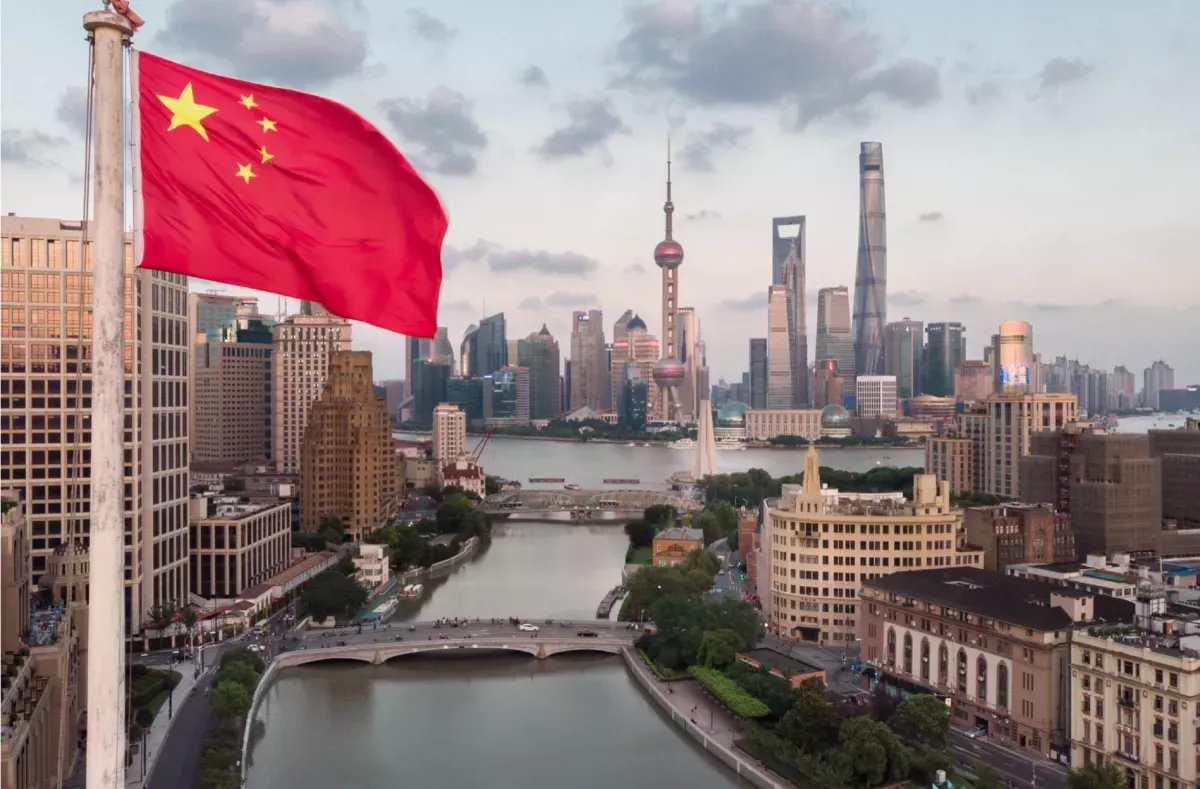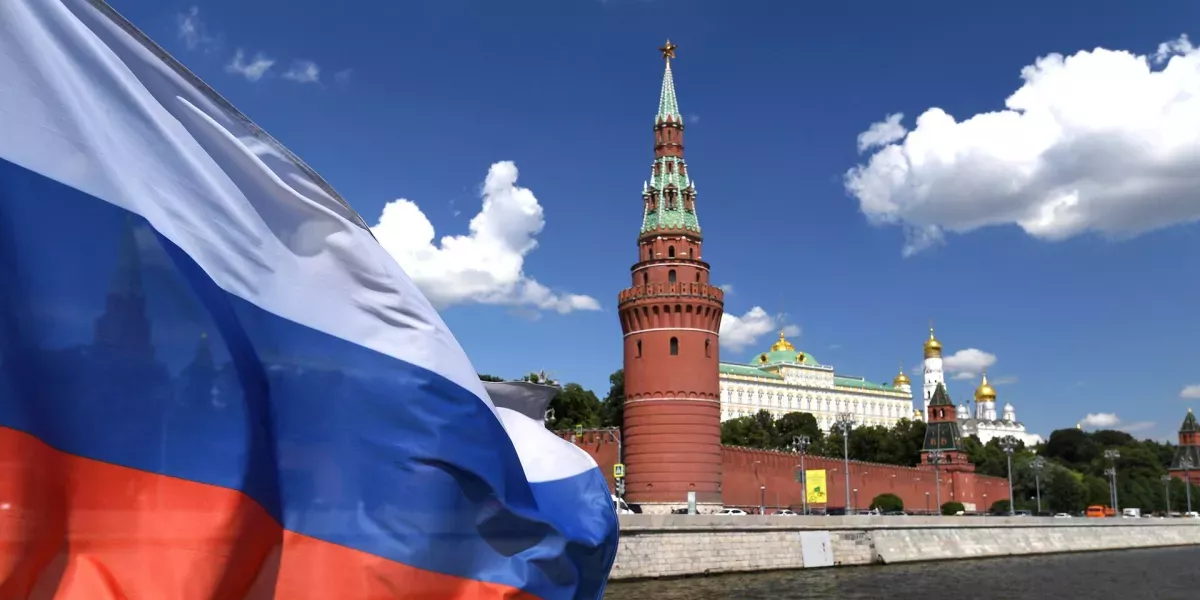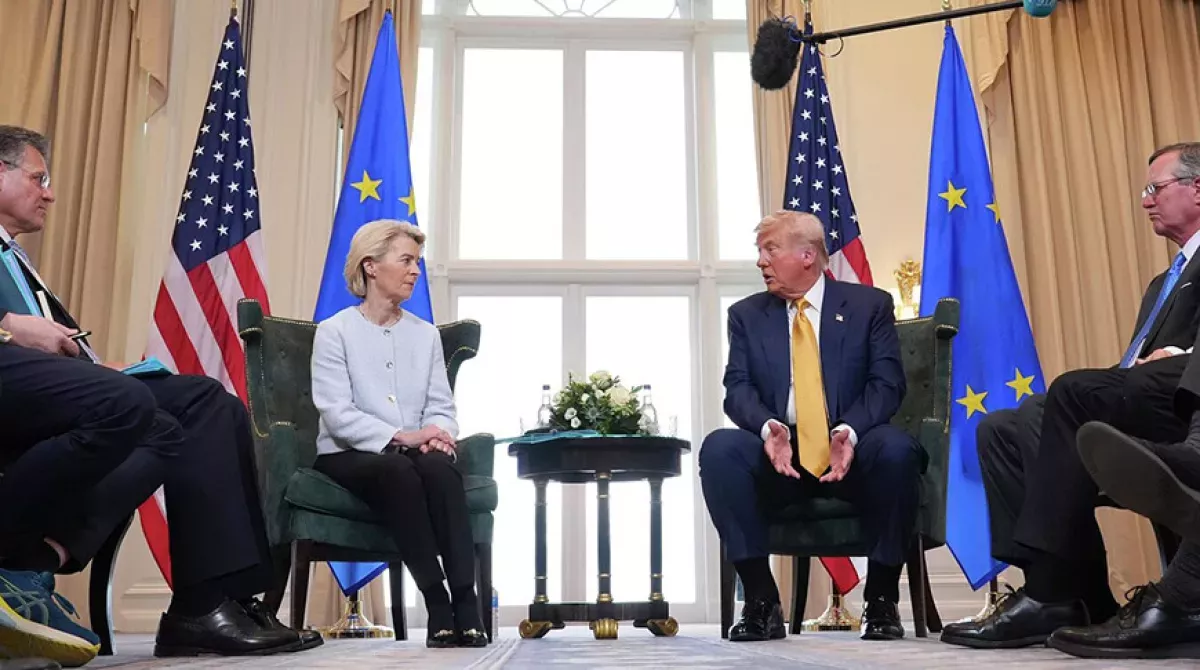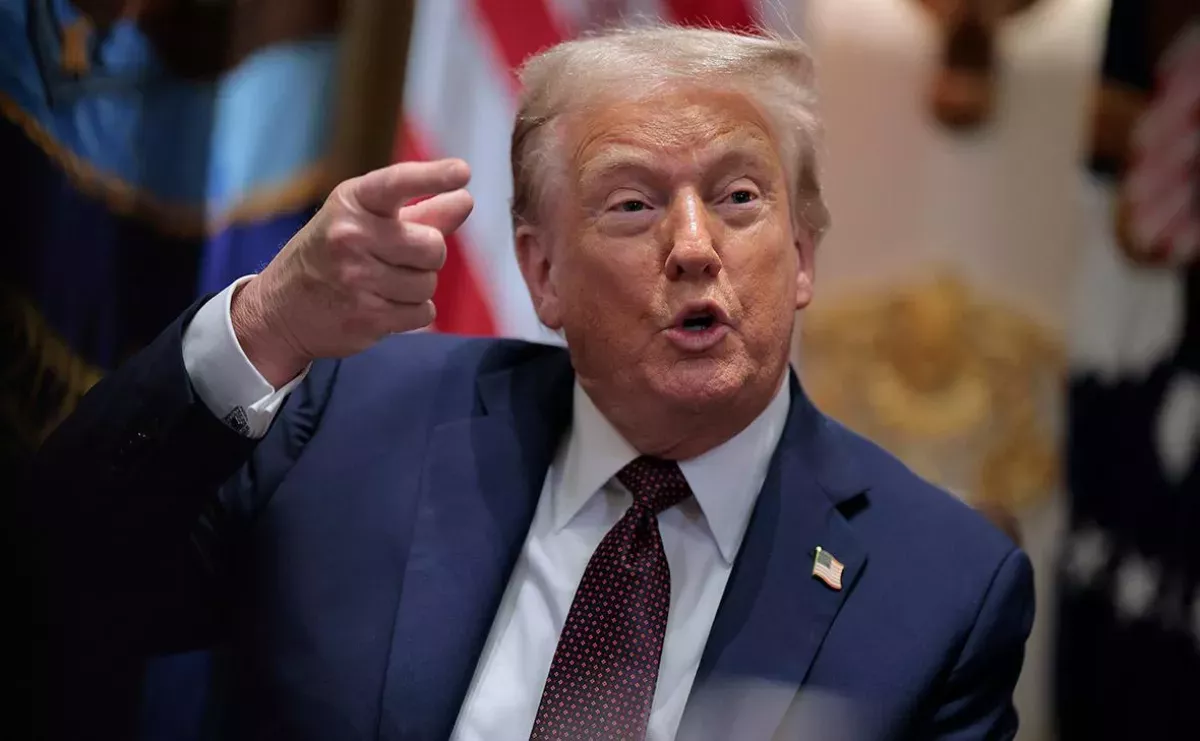The EU is tearing apart Western cohesion How Brussels’ fault lines hamper Washington’s global agenda?
This week, the European Union staged demonstrative actions against China. First, Poland cut off land transit between the EU and China, and then Greece confiscated maritime shipments from the country. In doing so, the EU sought to signal its willingness to support the United States against China, hoping in return for American assistance in the war with Russia. Trump was not fooled: he demanded that European leaders take more serious steps regarding both China and Russia. The EU had no choice but to comply, taking another step toward global conflict and further strategic marginalisation.
However, this does not indicate a genuine shift in Europe’s stance. As a result, the collective West still struggles to maintain cohesion, largely holding together due to historical inertia and the lack of alternatives.
The EU is not really pressuring China

European policy this week resembled a spectacular show of global confrontation between self-proclaimed “democracies” and their so-called “autocratic” rivals. On Monday, September 15, Chinese Foreign Minister Wang Yi visited Poland. Yet just days earlier, on Friday, September 19, Poland slammed shut its border with Belarus, cutting off the main overland transit route between China and the EU, which handles 90% of all land shipments between the two global actors.
The move was framed as a response to Belarusian-Russian military exercises, but the explanation was unconvincing. The exercises, long scheduled, were far smaller than NATO’s counter-drills, deliberately held away from the border, and attended by U.S. observers. When the exercises ended, the border remained closed, reinforcing suspicions that the real target was China. The timing also coincided with Trump’s demands that European leaders pressure China over its cooperation with Russia.
Was this pressure significant? Formally, the Polish route was the main overland connection between China and the EU. However, halting land transit—worth an estimated €25 billion per year—was annoying for China but not critical. It represents only a small fraction of total EU-China trade, which reached €732 billion in 2024. Moreover, shipments can be rerouted southward through the South Caucasus and Türkiye. It is therefore unsurprising that the Chinese foreign minister still visited Warsaw despite this disruption, signing and discussing new agreements.
A more serious move came on Tuesday, September 16, with the confiscation of Chinese goods in another EU country, Greece. The main flow of trade between the EU and China passes through Greece, as many of the relevant ships transit the nearby Suez Canal. Greek authorities seized nearly 2,500 containers from China, labeling them “smuggled goods,” signaling a potential mechanism to disrupt trade with Beijing. If there is political will, this could turn into a full-scale “hunt for smugglers.”
This tactic is not new—it mirrors earlier attempts to disrupt transit through the EU’s Baltic states. Yet, the move seems more like Athens and Brussels toying with Beijing than a clear signal of readiness to confront China.
In this way, the EU did not actually pressure China but staged a geopolitical show. Trump had made it clear that European leaders should impose tariffs on China for its cooperation with Russia and independently cease business with Moscow. Only after that would the White House be willing to seriously discuss joint actions with the EU against Russia.
The global political layout of the West can be simplified as a clash between U.S. and EU policies over the choice of priorities in confrontation. For Washington, the priority is China. The United States is trying to maintain its global leadership, which—due to China’s economic and technological development, military strength, and even social stability—is slipping away.
Meanwhile, Western countries are quarrelling with everyone, including each other, spending their last resources on war, and closing their borders—while the Chinese diligently work to build connections with everyone. To prevent global leadership from passing from the U.S. to China, there seems to be only one remaining path: to divert China’s focus from development to war, even if only a “cold” one.

But time has been lost, and now, to challenge China, the U.S. needs a coalition—primarily with the EU. Yet, Europeans are increasingly drawn into another conflict, with Moscow, not only neglecting Washington’s priorities regarding China but also inadvertently pushing Russia, with its vast resources, closer into Beijing’s orbit.
On top of that, the EU is attempting to draw the U.S. into a war with Russia. History shows that without American involvement, Europeans struggle to manage even smaller conflicts, such as in Libya. A war between the EU–NATO and Russia is now quite plausible, as the EU establishment has invested so heavily in geopolitical expansion in Eastern Europe that even agreeing to a stalemate with Moscow would be politically catastrophic for current European leaders. In that scenario, the political regimes of the EU could collapse like houses of cards.
The end of the “Energy Transition” seals the EU’s global ambitions
Overall, looking at the EU’s attempts to outmaneuver the Americans by offering a “placeholder” instead of real concessions, President Trump spoke midweek with European Commission President Ursula von der Leyen. He made it clear that the EU could only prove its seriousness by doing what U.S. officials had already instructed its leadership: imposing tariffs on Chinese and Indian goods (India has recently sought closer ties with China) linked to purchases of Russian oil. Trump emphasized that these needed to be actual tariffs, not EU “sanctions,” after which the same EU countries continue buying Russian energy resources.
The EU, whose leadership had already painted itself into a corner with geopolitical adventures and corruption scandals, was forced to respond urgently to Trump’s rebuke.

The European Commission acknowledged that after Ursula von der Leyen’s conversation with Trump, it postponed the presentation of the 19th sanctions package by a week to revise it. On Friday, September 19, Brussels unveiled the new package, which includes sanctions on oil companies and refineries in third countries, including China (though not the broad tariffs Trump had demanded); tightened export controls targeting China and India; and a complete EU phase-out of Russian gas within a year. Currently, one in every five cubic meters of gas in the EU comes from Russia—either as LNG or via the “Turkish Stream.”
It’s also clear why the EU is being stubborn, and it’s not just due to disagreements over where to focus its global confrontation. The issue is one of mistrust. On one hand, Washington’s stance appears to be a principled demand that European partners take serious measures against Russia and its business associates before the U.S. intensifies its own pressure on Moscow.
On the other hand, the EU has strong reasons to suspect that Washington has its own motives.
First, sanctions against China are being discussed under the guise of pressuring Russia, but in reality, the focus on Russia serves as a pretext to compel the EU into tough measures against China, which are currently of primary importance for implementing the U.S. global strategy. In other words, this pushes the EU away from its stated priority—confronting Russia.
Second, the U.S. is not merely asking Europeans to abandon “Putin’s gas”; it is using this pretext to curb the EU’s global ambitions. One component of the still largely undisclosed secret agreements between Ursula von der Leyen and Trump in July involved a massive increase in EU purchases of American energy—$750 billion over three years. This directly affects a crucial global issue on which the EU could have potentially outmanoeuvred the U.S.: the “energy transition,” i.e., the shift from fossil fuels to renewable energy sources. If the EU complies with these recent agreements with Washington, that vision effectively disappears.

The EU had once bet on developing advanced renewable energy technologies, which would not only have reduced its dependence on Russian supplies but also allowed it to surpass the U.S., whose interest in “green energy” has historically been far lower.
This contrast was amplified under Trump, whose supporters in the U.S. are closely tied to the interests of oil and gas companies. Adding fuel to the fire, Beijing not only invested heavily in green energy but also became the primary supplier of everything needed for the “energy transition”—from wind turbines to batteries.
Hence Trump’s stringent demands for Europeans to dismantle renewable energy capacities: this prevents the EU from emerging as a global competitor to the U.S. while also striking a blow to the Chinese economy.
In short, if the EU abandons Russian oil and gas and starts burning massive volumes of American energy, the consequences go far beyond mere market redistribution. It would effectively destroy all plans for the energy transition: who cares about wind or hydro power if the priority is consuming American gas? And by all indications, Europe is heading toward this scenario, burying its global ambitions in the process.
Will Trump task the British with reshaping Europe?
Even such concessions do not guarantee the EU’s liberal elites Trump’s favour. The American leader understands the price of the current goodwill. First, he knows he is dealing with people who long sought his political destruction and are now trying to outmaneuver him with agreements in both the EU and NATO.
Second, he recognises the weakness of the Euro-liberal elites and the regimes they lead. Economic decline in the EU continues to deepen under political forces supported by only a minority of the population.

This is evident in the current unrest in France, but other major EU countries are also unstable. In Germany, for example, the Alternative for Germany (AfD) party has firmly become the most popular party amid the refusal of other parties to cooperate with it and threats of banning it. The country is visibly declining—discussions about a 48-hour workweek have begun in the context of daily bankruptcies; on Friday, September 19, Germany’s oldest shipyard, with a 400-year history, collapsed. Without an extraordinary event—such as escalating confrontation with Russia or the suppression of the AfD as a “pro-Russian” force—it will be extremely difficult to halt the collapse of Germany’s current political model.
In other words, Trump knows he is dealing with European politicians sitting “on powder kegs” of public discontent, pressed by opposition forces. This explains his condescending tone toward European leaders and his skepticism toward the EU’s bellicose statements. He understands that the EU could change dramatically very soon.
As a result, he is already betting on a reshaping of Europe’s political landscape, identifying priorities in the region beyond the Brussels elite. Chief among them is close cooperation with the United Kingdom, which was highlighted this week during his visit there. While Washington demands new purchases, investments, and concessions from the EU, on Tuesday, September 16, Trump agreed in London to quite the opposite: U.S. companies will invest around $42 billion in developing British infrastructure for artificial intelligence in healthcare, quantum computing, and the nuclear industry.
In short, the Euro-liberals still in power in the EU may comfort themselves with the hope that flattery, promises of concessions, or preferential treatment will win Trump’s support in their main undertaking—confronting Russia. But as events this week have shown, they cannot deceive him. He swiftly sets EU leaders straight, leaders who lack both Trump’s competence in deal-making and his political will.
However, for now, Trump’s pressure is insufficient to overcome the split within the collective West. There is a clear and persistent lack of trust between the U.S. and the EU. While Trump is building new axes of cooperation with Europe through the United Kingdom, establishing new structures for engagement takes time.
Meanwhile, internal discord within the EU continues to grow, making it a loose and unreliable partner for the U.S.—at least as long as the current right- and left-liberal minority governments remain in power. These governments fundamentally view the priorities of the collective West differently from Trump and will likely revisit all agreements with him at the first opportunity.
This means the U.S. is losing crucial time needed to maintain its global hegemony. Mobilizing the collective West to confront China should have started “the day before yesterday,” yet it has not even begun today. For this reason, it may soon become necessary for all parties to start negotiating directly with China.








